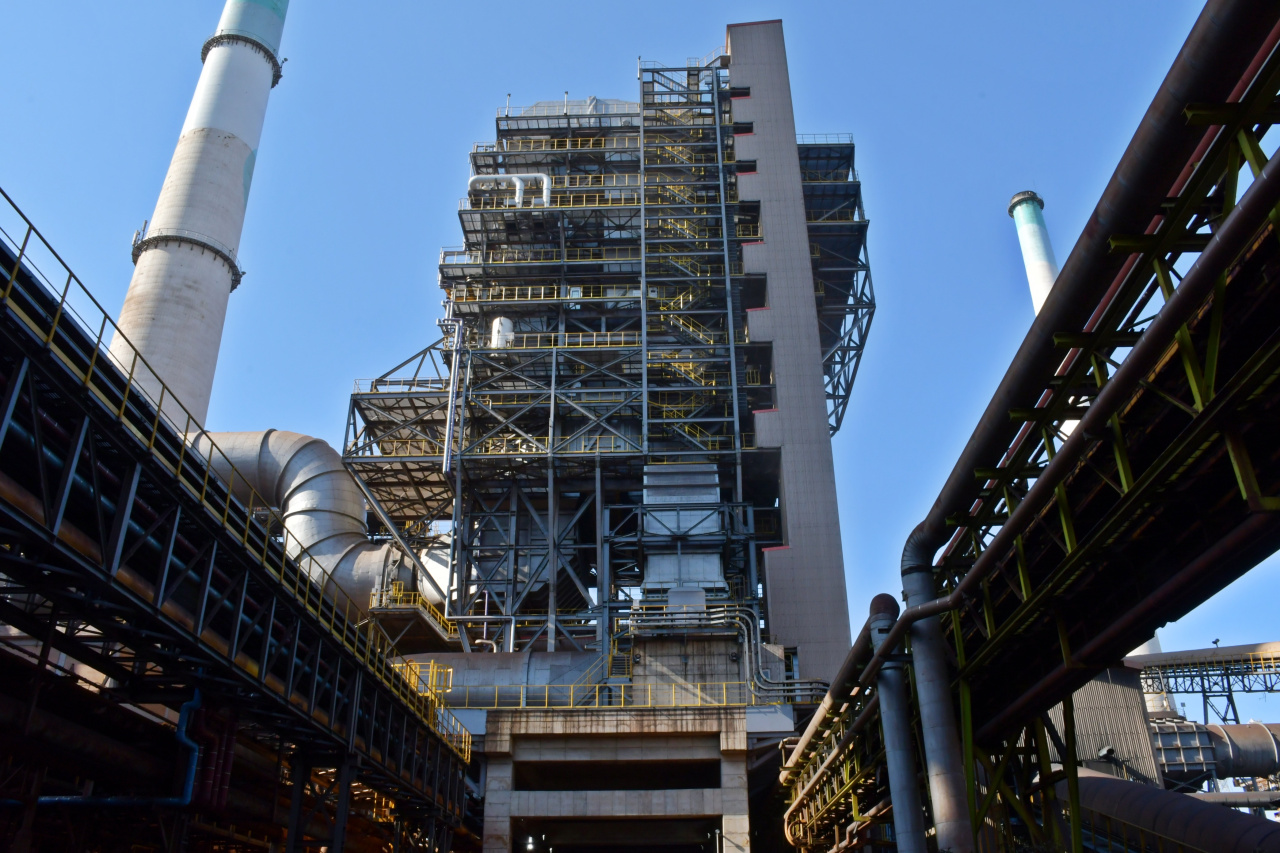 |
Posco’s selective catalytic reduction facility constructed in Pohang steel mill’s sinter plant (Posco) |
South Korean steel maker Posco said Tuesday it held a completion ceremony for a facility to reduce pollution at its Pohang steel mill’s sinter plant.
According to Posco, its sinter plants are where the steel producer mixes iron ore fines with other fine materials at high temperatures into sintered ores, which can then be used to make steel.
The process creates air pollution, including nitrogen oxides and sulfur oxides, which are a source of fine dust.
The new facility converts the nitrogen oxide into nitrogen and water, the company explained.
With the new facility, Posco said it expects to cut nitrogen oxide emissions by about 80 percent, from 140 to 160 parts per million to 30 to 40 ppm.
“The results of our multilateral efforts to reduce fine dust particles are on show,” Nam Soo-hi, the head of Pohang Works, said.
“Posco will do its best to take responsibility and establish environment-friendly facilities to gain future competitiveness in the steel industry.”
In 2019, Posco has pledged to invest about 1 trillion won ($895 million) to reduce air pollutant emissions by 2021.
As of the end of this year, the company would have spent 970 billion won on facilities to reduce the environmental impact of its plants, such as the selective catalytic reduction facilities and closed coal storage facilities in its steel plants in Pohang and Gwangyang, the company said.
Posco is also working to develop a telemonitoring system that measures pollutant emission levels in real time, the company said.
By Jo He-rim (
herim@heraldcorp.com)





![[KH Explains] For Korean automakers, Chinese EVs may loom larger than Trump’s tariffs](http://res.heraldm.com/phpwas/restmb_idxmake.php?idx=644&simg=/content/image/2024/11/14/20241114050537_0.jpg)
![[Graphic News] Tainan predicted top destination for South Koreans in 2025](http://res.heraldm.com/phpwas/restmb_idxmake.php?idx=644&simg=/content/image/2024/11/13/20241113050807_0.gif)

